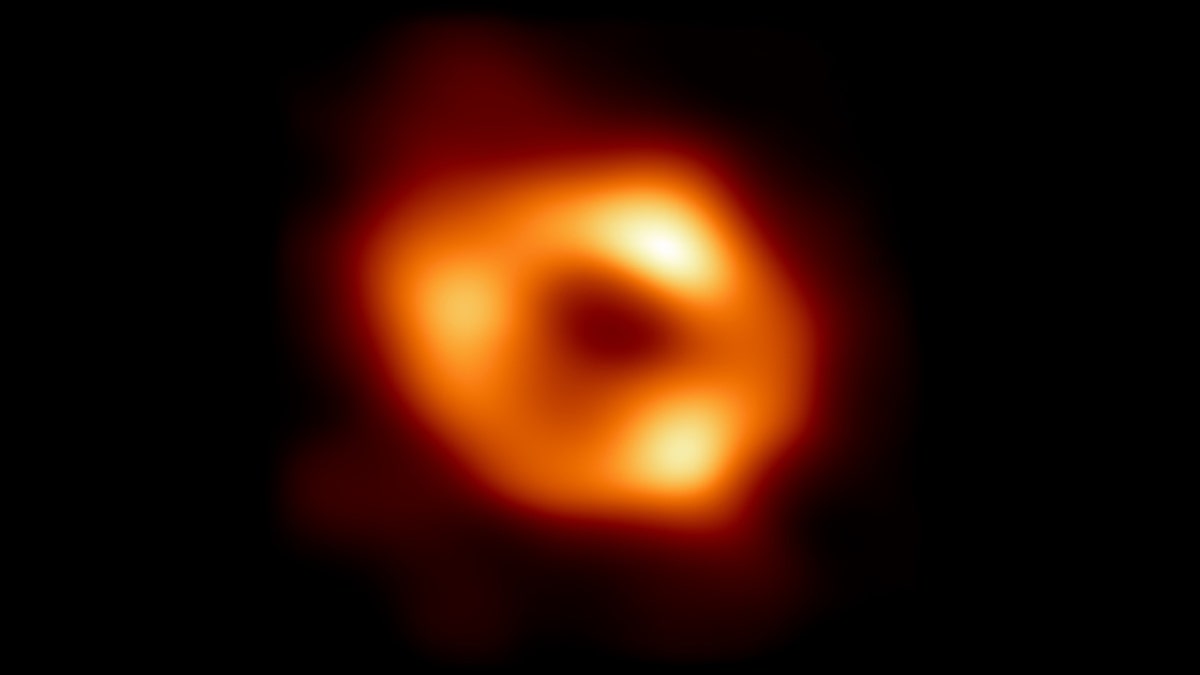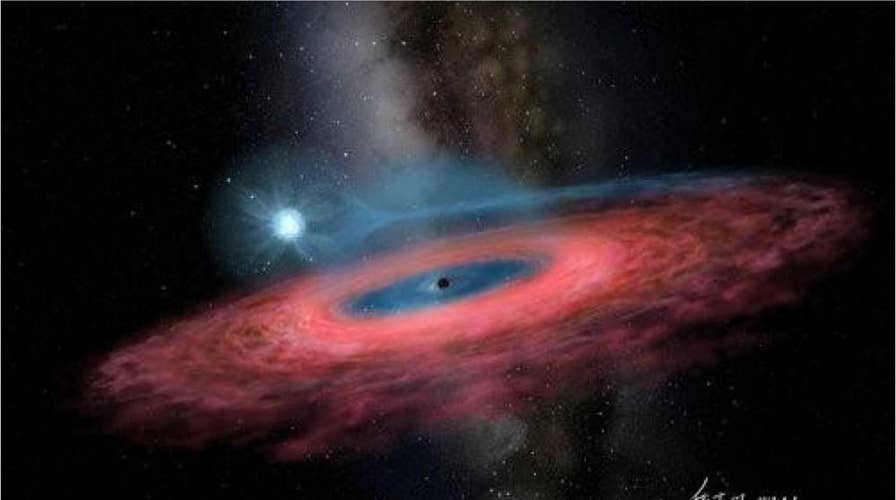Giant black hole 'should not even exist,' stunned scientists say
Scientists are left questioning their math after a giant black hole 70-times the size of the sun is discovered.
Astronomers have unveiled the first image of the supermassive black hole and the center of the Milky Way galaxy.
The colorized picture was produced by the international Event Horizon Telescope (EHT) Collaboration, using observations from a worldwide network of radio telescopes.
MARS INSIGHT LANDER RECORDS MASSIVE QUAKE
The group wrote Thursday that scientists had previously seen stars orbiting around something invisible, compact and very massive at the center of the galaxy, strongly suggesting that the object – known as Sagittarius A(asterisk) – is a black hole.
"This result provides overwhelming evidence that the object is indeed a black hole and yields valuable clues about the workings of such giants, which are thought to reside at the centre of most galaxies," it said.
Although the black hole itself is not visible, glowing gas that surrounds it reveals a "telltale signature," with a dark central region surrounded by a bright ring-like structure.
The black hole is about 27,000 light-years away from Earth and 4 million times more massive than our Sun.
SCIENTISTS WANT TO LAUNCH DEPICTIONS OF NUDE HUMANS TO ALIENS
To capture the black hole, the team linked together eight existing radio observatories to form a single "Earth-sized" virtual telescope.
The collaboration observed Sagittarius A(asterisk) on multiple nights, collecting data for consecutive hours.

Sagittarius A(asterisk) captured by the Event Horizon Telescope (EHT) Collaboration (Credit: EHT Collaboration)
Previous efforts had found the black hole in the center of the galaxy too jumpy to get a good picture.
The researchers had to develop sophisticated new tools that accounted for the gas movement around Sagittarius A(asterisk).
The project cost nearly $60 million, with $28 million coming from the U.S. National Science Foundation. The team's results are being published Thursday in a special issue of The Astrophysical Journal Letters.
CLICK HERE TO GET THE FOX NEWS APP
The breakthrough follows the collaboration's 2019 release of the first image of a black hole, called M87(asterisk), at the center of the Messier 87 galaxy.
While the black holes look similar, Sagittarius A(asterisk) is a thousand times smaller and less massive.
The Associated Press contributed to this report.


